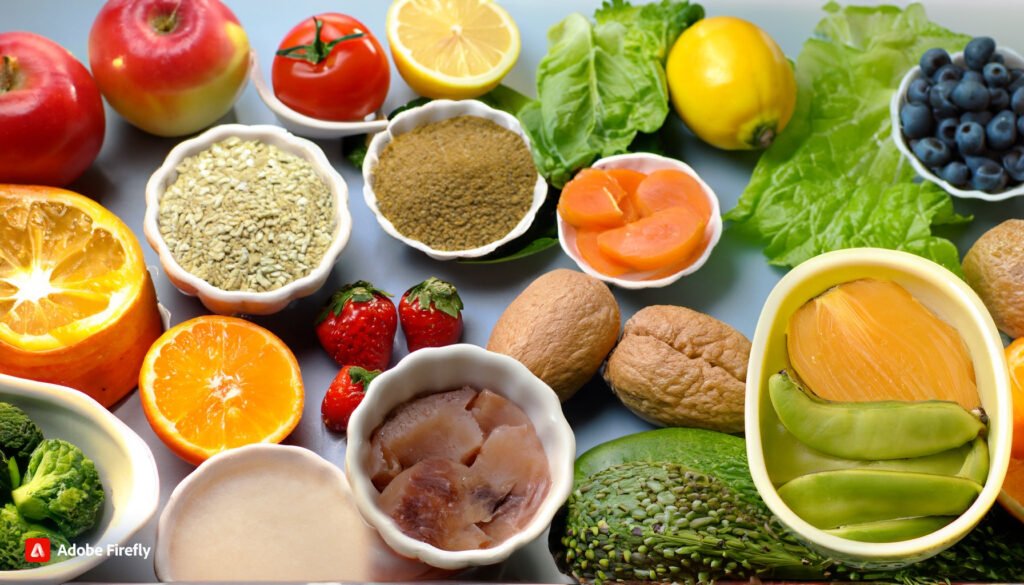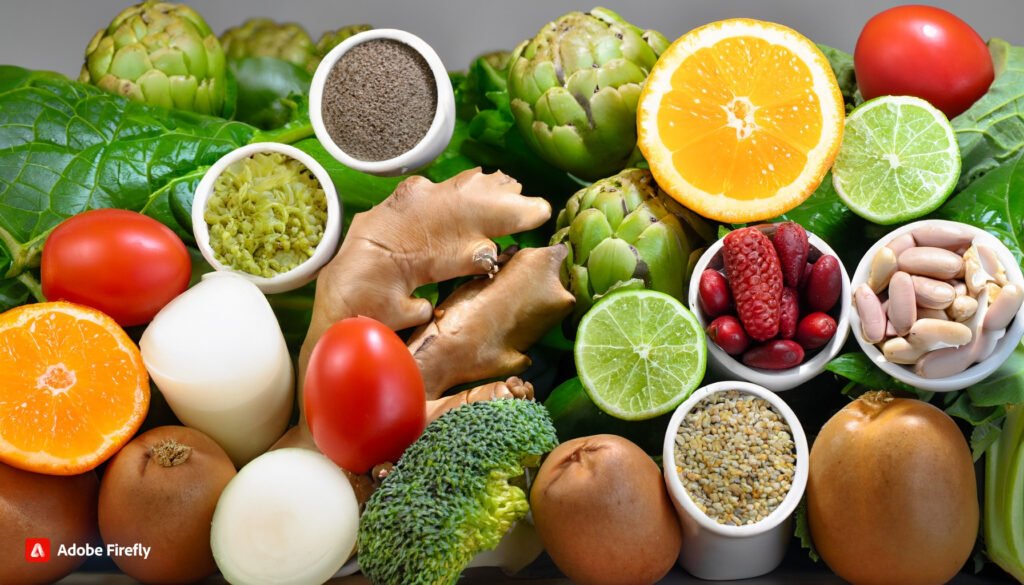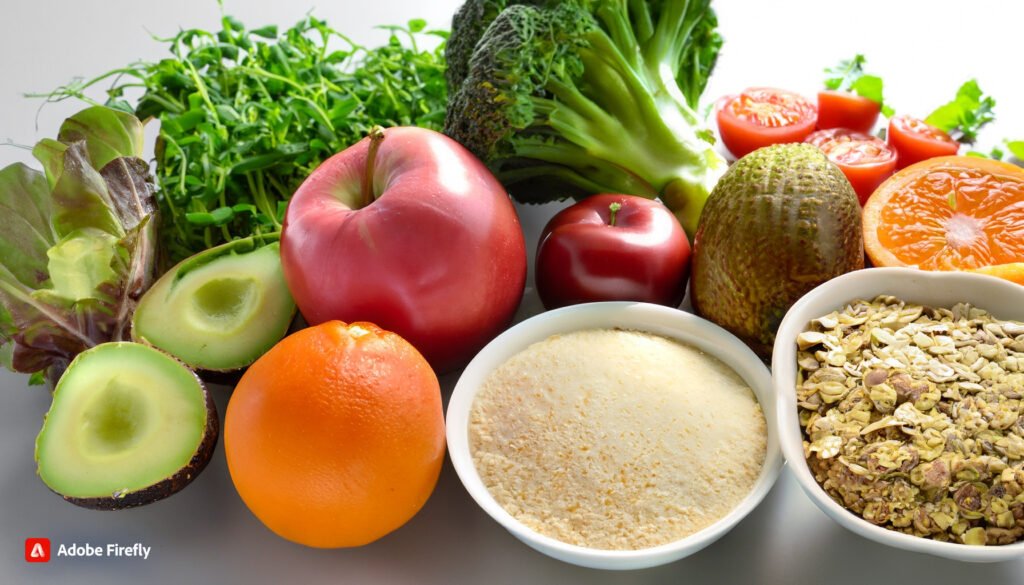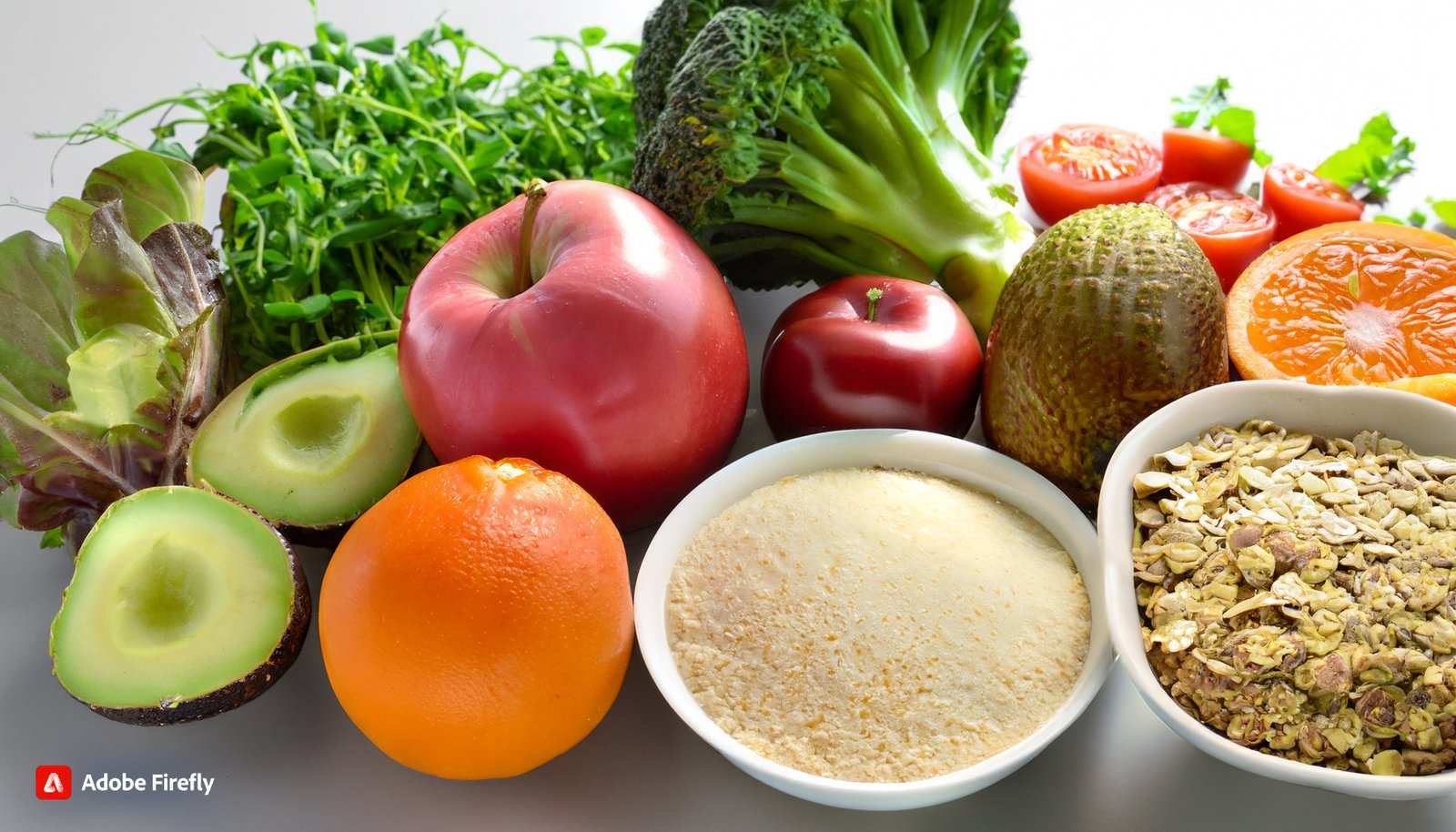In a world filled with processed foods and dietary fads, the timeless wisdom of consuming natural, whole foods remains a cornerstone of good health. This article delves into the science-backed benefits of natural foods, exploring their role in promoting well-being and preventing various health conditions. From fresh fruits and vegetables to whole grains and lean proteins, discover the power of nature’s bounty in nourishing and protecting our bodies.
Section 1: The Essence of Natural Foods
- Defining Natural Foods:
- Understanding what constitutes natural foods and their unprocessed nature.
- The contrast with highly processed, artificial options.
- The Importance of Whole Foods:
- Why whole foods are essential for optimal nutrition.
- The significance of preserving nutrients through minimal processing.
Section 2: Nutrient-Rich Natural Foods
- Vibrant Fruits and Vegetables:
- The diverse array of nutrients found in fruits and vegetables.
- The role of antioxidants, vitamins, and minerals in disease prevention.
- Whole Grains:
- The health benefits of incorporating whole grains into the diet.
- Reducing the risk of heart disease and type 2 diabetes through whole grains.
- Lean Proteins:
- The importance of lean protein sources for muscle health.
- Balancing protein intake for vegetarians and vegans.
Section 3: The Impact on Heart Health
- Reducing Cardiovascular Risk:
- How natural foods can lower cholesterol levels and blood pressure.
- Promoting heart health through a balanced diet.
- Omega-3 Fatty Acids:
- The role of omega-3 fatty acids in preventing heart disease.
- Sources of omega-3s in natural foods.
Section 4: Natural Foods and Weight Management
- The Power of Fiber:
- How fiber-rich natural foods support weight loss and maintenance.
- Strategies for incorporating fiber into daily meals.
- Portion Control and Satiety:
- The natural ability of certain foods to promote feelings of fullness.
- Preventing overeating through mindful eating practices.
Section 5: Natural Foods for Diabetes Prevention
- Balancing Blood Sugar:
- The impact of natural foods on stabilizing blood glucose levels.
- Dietary choices for individuals at risk of or with type 2 diabetes.
- The Glycemic Index:
- Understanding the glycemic index and its relevance to food choices.
- Low-GI natural foods and their benefits.
Section 6: Natural Foods and Digestive Health
- Fiber and Gut Health:
- How dietary fiber from natural foods supports a healthy gut.
- Preventing digestive issues and promoting regularity.
- Probiotics and Fermented Foods:
- The role of probiotics and fermented foods in gut health.
- Incorporating yogurt, kimchi, and other probiotic-rich options.
Section 7: Antioxidants and Disease Prevention
- Antioxidant-Rich Foods:
- The significance of antioxidants in neutralizing harmful free radicals.
- Natural foods with high antioxidant content.
- Reducing Cancer Risk:
- The potential link between antioxidant-rich diets and cancer prevention.
- The importance of variety in the diet for overall health.
Section 8: The Role of Natural Foods in Longevity
- Aging Gracefully:
- How natural foods can support healthy aging.
- Nourishing the body with essential nutrients.
- Lifestyle Factors:
- The synergy between natural foods and other healthy lifestyle choices.
- The impact on longevity and overall well-being.
Section 9: Practical Tips for Incorporating Natural Foods
- Grocery Shopping Guidance:
- Tips for selecting natural foods at the grocery store.
- Reading labels and making informed choices.
- Cooking and Meal Preparation:
- Easy and delicious recipes featuring natural ingredients.
- Meal planning for a balanced and nutritious diet.



Conclusion: Embracing the Bounty of Nature for a Healthier Life
Natural foods aren’t just a trend; they are a fundamental pillar of well-being. By understanding the science behind these foods and making them a regular part of our diets, we can harness their potential to promote health and prevent a range of health conditions. Nature’s bounty is our ally in the pursuit of a healthier, happier life.






